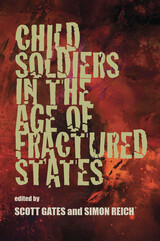
The contributors seek to eliminate myths of historic or culture-based violence, and instead look to common traits of chronic poverty and vulnerable populations. Individual essays examine topics such as: the legal and ethical aspects of child soldiering; internal UN debates over enforcement of child protection policies; economic factors; increased access to small arms; displaced populations; resource endowments; forced government conscription; rebel-enforced quota systems; motivational techniques employed in recruiting children; and the role of girls in conflict.
The contributors also offer viable policies to reduce the recruitment of child soldiers such as the protection of refugee camps by outside forces, “naming and shaming,” and criminal prosecution by international tribunals. Finally, they focus on ways to reintegrate former child soldiers into civil society in the aftermath of war.
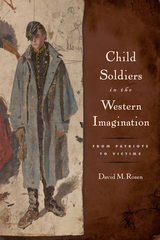
In this daring new study, anthropologist David M. Rosen investigates why our cultural perception of the child soldier has changed so radically over the past two centuries. Child Soldiers in the Western Imagination reveals how Western conceptions of childhood as a uniquely vulnerable and innocent state are a relatively recent invention. Furthermore, Rosen offers an illuminating history of how human rights organizations drew upon these sentiments to create the very term “child soldier,” which they presented as the embodiment of war’s human cost.
Filled with shocking historical accounts and facts—and revealing the reasons why one cannot spell “infantry” without “infant”—Child Soldiers in the Western Imagination seeks to shake us out of our pervasive historical amnesia. It challenges us to stop looking at child soldiers through a biased set of idealized assumptions about childhood, so that we can better address the realities of adolescents and pre-adolescents in combat. Presenting informative facts while examining fictional representations of the child soldier in popular culture, this book is both eye-opening and thought-provoking.

Fourteen-year-old George Maguire was eager to serve the Union when his home state, Maryland, began raising regiments for the coming conflict. Too young to join, he became a “mascot” for the Fifth Maryland Infantry Regiment, organized in September 1861. Although he never formally enlisted or carried a weapon, Maguire recounts several pivotal events in the war, including the sea battle of the Monitor vs. Merrimac, Peninsula Campaign action, and the Battle of Antietam.
During middle age, Maguire recorded his memoir—one of the few from a Maryland unit—providing a distinctive blend of the adventures of a teenage boy with the mature reflection of a man. His account of the Peninsula Campaign captures the success of the mobilization of forces and confirms the existing historical record, as well as illuminating the social structure of camp life. Maguire’s duties evolved over time, as he worked alongside army surgeons and assisted his brother-in-law (a “rabid abolitionist” and provost marshal of the regiment). This experience qualified him to work at the newly constructed Thomas Hicks United States General Hospital once he left the regiment in 1863; his memoir describes the staffing hierarchy and the operating procedures implemented by the Army Medical Corps at the end of the war, illuminated with the author’s own sketches of the facility.
From the Pratt Street riot in Baltimore to a chance encounter with Red Cross founder Clara Barton to a firsthand view of Hicks Hospital, this sweeping yet brief memoir provides a unique opportunity to examine the experiences of a child during the war and to explore the nuances of memory. Beyond simply retelling the events as they happened, Maguire’s memoir is woven with a sense of remorse and resolve, loss and fear, and the pure wonderment of a teenage boy accompanying one of the largest assembled armies of its day.
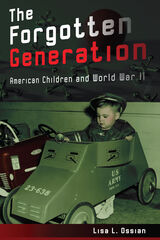
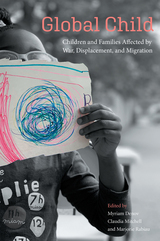
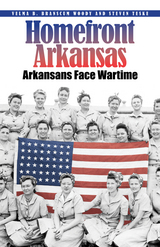
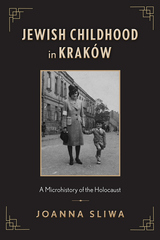
Jewish Childhood in Kraków is the first book to tell the history of Kraków in the second World War through the lens of Jewish children’s experiences. Here, children assume center stage as historical actors whose recollections and experiences deserve to be told, analyzed, and treated seriously.
Sliwa scours archives to tell their story, gleaning evidence from the records of the German authorities, Polish neighbors, Jewish community and family, and the children themselves to explore the Holocaust in German-occupied Poland and in Kraków in particular. A microhistory of a place, a people, and daily life, this book plumbs the decisions and behaviors of ordinary people in extraordinary times.
Offering a window onto human relations and ethnic tensions in times of rampant violence, Jewish Childhood in Kraków is an effort both to understand the past and to reflect on the position of young people during humanitarian crises.
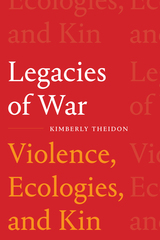
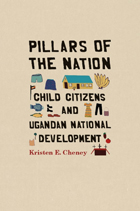
How can children simultaneously be the most important and least powerful people in a nation? In her innovative ethnography of Ugandan children—the pillars of tomorrow’s Uganda, according to the national youth anthem—Kristen E. Cheney answers this question by exploring the daily contradictions children face as they try to find their places amid the country’s rapidly changing social conditions.
Drawing on the detailed life histories of several children, Cheney shows that children and childhood are being redefined by the desires of a young country struggling to position itself in the international community. She moves between urban schools, music festivals, and war zones to reveal how Ugandans are constructing childhood as an empowering identity for the development of the nation. Moreover, through her analysis of children’s rights ideology, national government strategy, and children’s everyday concerns, Cheney also shows how these young citizens are vitally linked to the global political economy as they navigate the pitfalls and possibilities for a brighter tomorrow.

You are nine years old. Your best friend's father is arrested, half your classmates disappear from school, and someone burns down the house across the road. You think your neighbors were planning to kill your family. You are eight years old and imprisoned in your home by your father's old friends. You are ten years old and must climb a mountain at night to escape the soldiers trying to shoot you.
What happens to children who grow up with war? How do they live with the daily reality of danger, hunger, and loss--and how does it shape the adults they become?
In Then They Started Shooting, child psychiatrist Lynne Jones draws the reader into the compelling stories of Serbian and Muslim children who came of age during the Bosnian wars of the 1990s. These children endured hardship, loss, family disruption, and constant uncertainty, and yet in a blow to psychiatric orthodoxy, few showed lasting signs of trauma. Thoughts of their personal futures filled their minds, not memories of war.
And yet, Jones suggests in a chilling conclusion, the war affected them deeply. Officially citizens of the same country, the two communities live separate, wary lives. The Muslims hope for reconciliation but cannot believe in it while so many cannot go home and war criminals are still at large. The Serbs resent the outside world, NATO, and fear the return of their Muslim neighbors. Cynical about politics, all of them mistrust their elected leaders. War may end, but the persistence of corruption and injustice keep wounds from healing.

In the last half century, the nature of war has changed dramatically. Wars in the post–Cold War period have occurred mainly within national borders rather than between sovereign states. In these conflicts, civilians are increasingly the deliberate targets of war rather than accidental victims. Women and children in particular have become the intentional targets of murder, rape, and kidnapping.
The book focuses on the impact of war on women and girls, and the potential for women as peacemakers. The text addresses major policy issues facing organizations involved in humanitarian assistance, and highlights actions to address and resolve armed violence and conflict.
Wounds of War presents ten country profiles, along with information on eleven key topics related to the impacts of war, including the economies of war, small arms and light weapons, landmines, violence against women and girls, and missing persons.
READERS
Browse our collection.
PUBLISHERS
See BiblioVault's publisher services.
STUDENT SERVICES
Files for college accessibility offices.
UChicago Accessibility Resources
home | accessibility | search | about | contact us
BiblioVault ® 2001 - 2024
The University of Chicago Press









